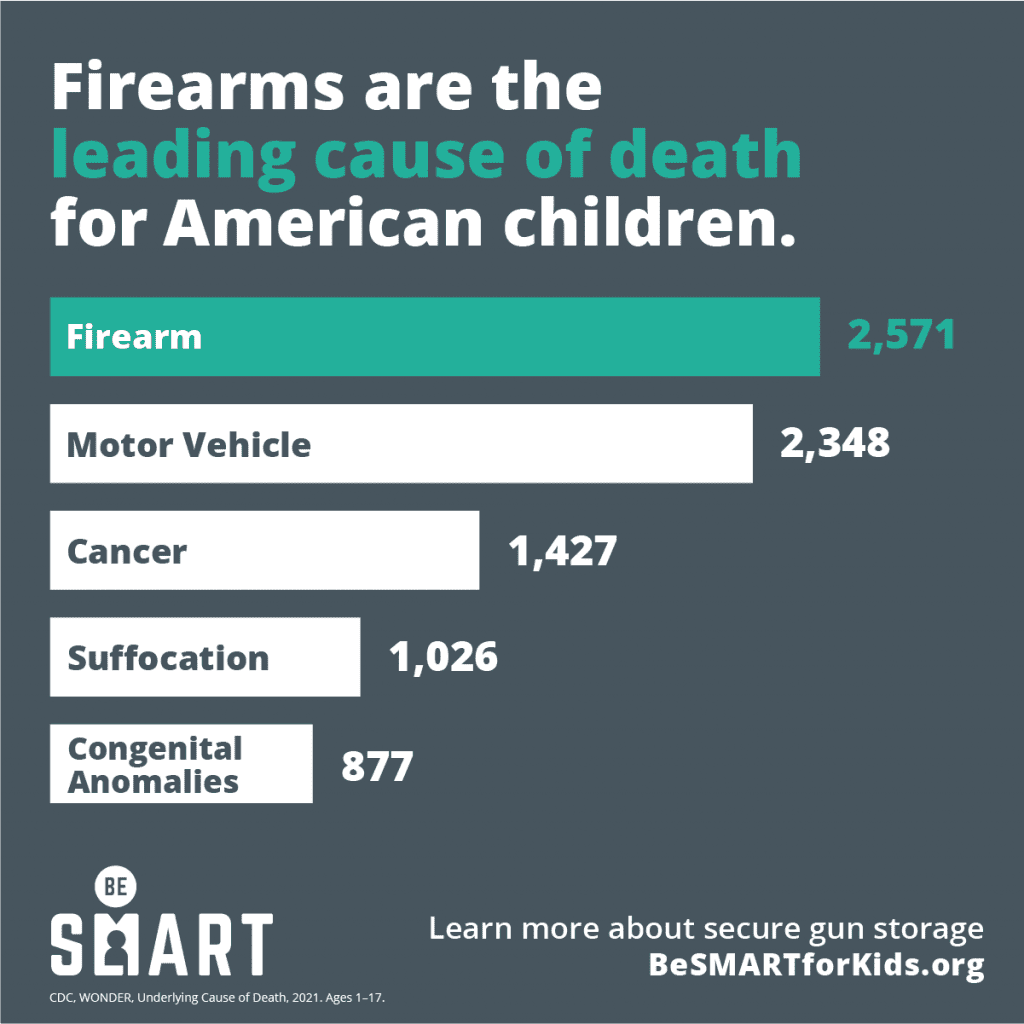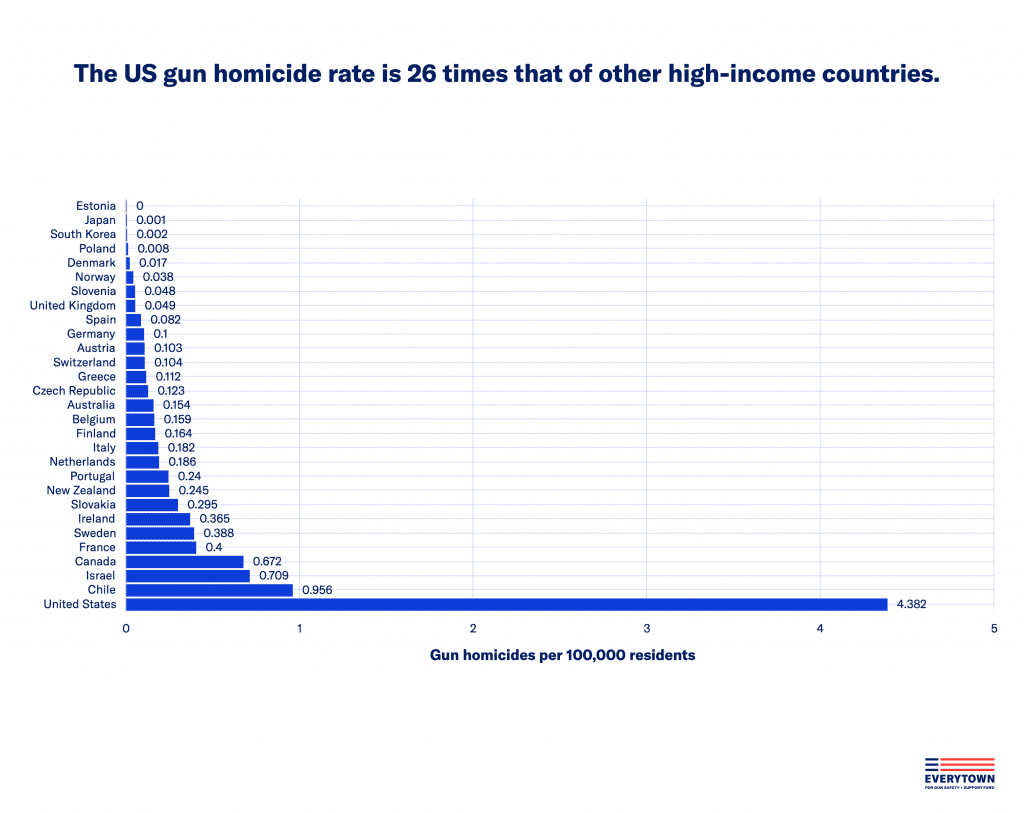There have been 376 school shootings since Columbine in 1999. Across all such incidences, at least 199 children, educators, and other people have been killed, and another 425 have been injured, according to a database kept by the Washington Post.
Psychiatrist.com spoke with Kelsey Gastineau, MD, a Moms Demand Action volunteer — one of the grassroots networks for the organization Everytown for Gun Safety — about the psychological impact gun violence is having on an entire generation of children. Gastineau is also a board-certified pediatrician practicing in Nashville, TN., a community where, last week, a shooter opened fire at the Covenant School, killing three 9-year-olds and three adults.
Gatineau wanted to sound a warning: the kids are not alright. Even when they are not directly a victim or a witness, the frequency of school and other mass shootings shatters their emotional well-being and sense of safety, she said.
How Big A Problem Is Gun Violence For Children?
KG: We know that guns are the leading cause of death for children, teens, and college-age people in the U.S. And nearly every year, 4,000 children and teens die from firearms and another 15,000 are shot and wounded. That’s an average of 53 kids and teens in this country daily. Every day.
And that’s it for me as a pediatrician. A horrifying statistic. Gun violence ripples through communities. They are growing up in a country that has a culture of gun violence and that is unique to America.

How Does This Exposure To Violence Affect Them?
KG: I worry about what it does for their development. Every single instance of gunfire that children are exposed to impacts their ability to learn, to grow, and develop.
For young people in particular, just the cumulative impact of hearing about relentless school shootings combined with lockdowns and shooter drills in our schools is killing this generation of schoolchildren with fear about how they might walk by gun violence. And when they get to school, they can’t concentrate and they can’t learn.
We also know that children who are exposed to gun violence have outcomes that are worse, meaning they have higher rates of anxiety, aggression, PTSD, and difficulty concentrating and learning in schools.
And so we have to address this. Now is the time we have to act on the epidemic of daily gun violence that all too many children are exposed to.
What Does This Mean for Children In Close Proximity To A Shooting
KG: It’s awful. Truly. This week has been one of the most emotionally challenging weeks that I have had in my professional career as a pediatrician. I have friends who have been texting and I have parents who have been sharing the stories of their children. And a dear friend of mine said that their child told her, “if you love me, you won’t make me go to school tomorrow.”
That wasn’t just one parent either. There have been multiple parents and friends who said that their kids are afraid to go to school. And they are. And that’s not fair. They should not be living in fear.
Gun violence forever changes the lives of people who experience it, witness it, are threatened by it. And now this community is going through it. You don’t get over it. You don’t move on. For many, it feels like a scar that’s just never going to heal and it’s one of the deepest emotional experiences someone can go through.

How Can Clinicians Help?
KG: I hate that there is actually information out there to provide. But talking to kids about gun violence might not be avoidable in today’s climate, especially when it’s impacting you, your family, or your patients. Obviously, as clinicians, primary care physicians, psychologists, psychiatrists, pediatricians, we know that the age and maturity of the child is really going to matter.
What you say to a child should be tailored to the age group. For preschoolers, one sentence is all they need, but it should be direct and not ambiguous, which is true for kids of all ages. A sense of security is really important. They need to know that a parent and adults are there to protect them.
I think it’s really important to answer questions honestly. I always make sure to be present in that conversation, which can be really hard depending on how the adult is coping and processing all of this information. Look out for signs and symptoms of trauma, which are always going to be different in kids and adolescents when compared with adults. And let them know that you’re there for them.
Final Thoughts?
KG: If people are ready to take the next step and to really help, get in the movement to demand action from our lawmakers. Help join the fight to end gun violence and help put our kids first.
I want this not to be the world. I want kids to be able to go to school without having to experience these things and to feel any sort of emotion, whether it be for sadness or trauma. I want them to grow up and learn in a place free of gun violence.
This interview was edited for brevity and clarity.



